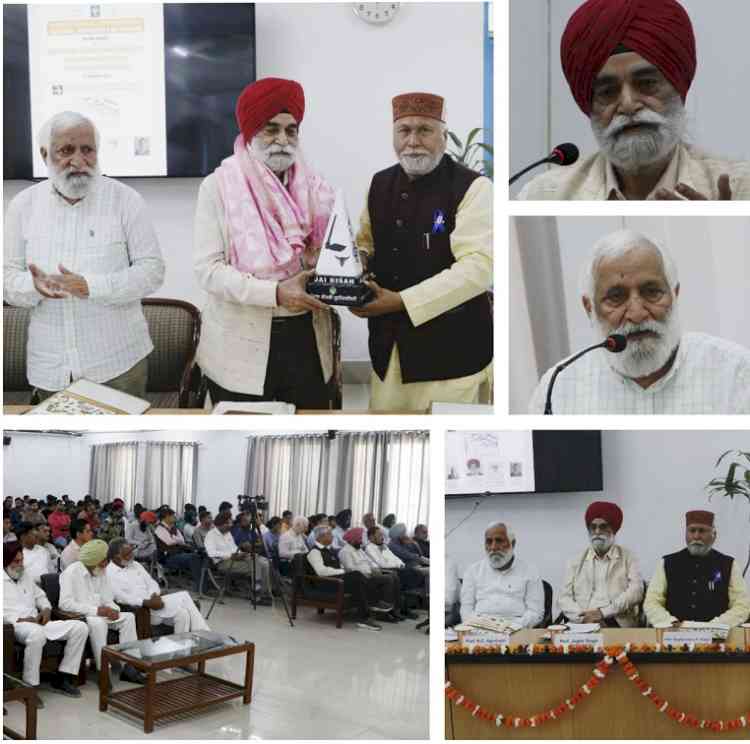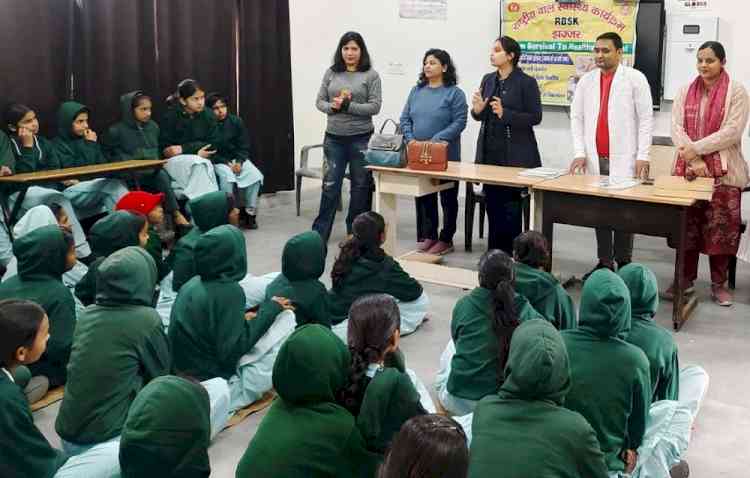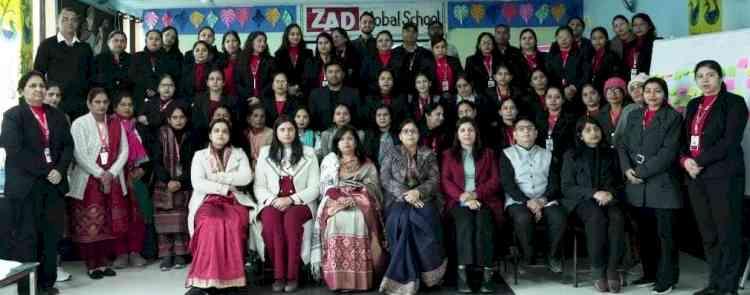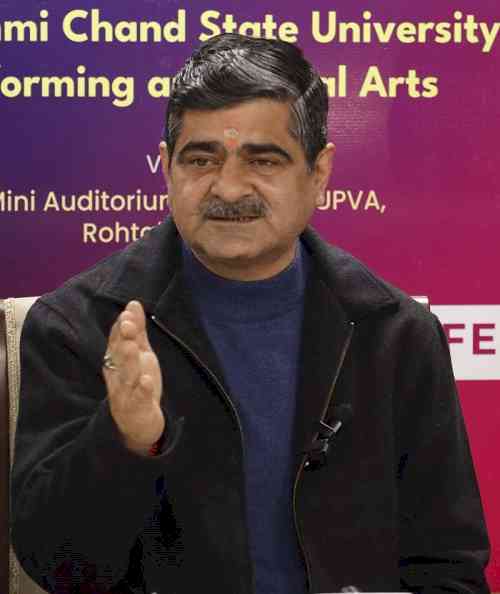National Seminar on “Contributions of Sapta Sindhu Litterateurs in Indian Freedom Struggle: A Socio-historic Perspective”
Two days National Seminar on “Contributions of Sapta Sindhu Litterateurs in Indian Freedom Struggle: A Socio-historic Perspective” commenced at Central University of Punjab.

Bathinda, March 27, 2023: The ICSSR sponsored two days National Seminar on " Contributions of Sapta Sindhu Litterateurs in Indian Freedom Struggle: A Socio-historic Perspective," scheduled for March 27–28, 2023, which commenced at the Central University of Punjab, Bathinda (CUPB).
The inaugural ceremony of this seminar was held on Monday. Under the patronage of Vice-Chancellor Prof. Raghavendra P. Tiwari. Prof. Jagbir Singh, Hon’ble Chancellor, Central University of Punjab, and Prof. Kuldip Chand Agnihotri, Former Vice-Chancellor, Central University of Himachal Pradesh, and Former Adversary, Minister of Culture, graced the event as the Chief Guest and the Guest of Honour, respectively.
The inaugural session commenced with the welcome address and introduction of guests by Dr. Bali Bahadur, co-convener and HoD, Dept. of Sociology. Dr. Neelu Rawat, programme convener, mentioned thar The Sapta Sindhu region holds special importance in the glorious history of India. This region has been the focal point of art, spirituality, education, and politics. In the Sapta Sindhu region, there were many writers whose works guided and encouraged the revolutionaries in the Indian freedom struggle. This two days national seminar is a humble attempt to pay tribute to those classical writers of the Sapta Sindhu region.
While addressing the participants, Prof. Jagbir Singh, Chancellor, mentioned that the Sapta Sindhu Region, known as the land of seven rivers, was a place where the RigVeda was written and the world-famous ancient university Takshshila was located. The knowledge, traditions, and culture of Sapta Sindhu Region civilization have given rise to the idea of ‘nation as a civilizational state," which cannot be broken and continues to work for the upliftment of humanity. He added that although this region had faced cultural attacks from several invaders for more than 1000 years, the people of this region succeeded in preserving their culture by following the message of 10 Sikh Gurus and saints. He cited the verses from Guru Nanak Bani to state that the life philosophy of Sikh Guru Sahibaans and their literary writings played an instrumental role in awakening the people of India to raise their voices against injustices affecting the weaker section of society.
Prof. K.C. Agnihotri, the Guest of Honour, talked about the geographical, linguistic, and cultural entities of the Sapta Sindhu Region. He emphasised that the civilization of the Sapta Sindhu Region has given our nation a culture of continuity and pluralism. He added that the Dasam Sikh Guru Parampara and establishment of Khalsa Panth by the tenth Sikh Guru, Sri Guru Gobind Singh Ji, further enlightened people to become Sant Sipahi by learning the message of serving humanity and protecting the innocent from religious persecution. He asserted that this seminar will help participants know the untold stories about the contribution of writers of vernacular languages to the freedom struggle through their writings.
Prof. Raghavendra P. Tiwari, in his presidential address that our ancient knowledge, traditions, and culture have taught us to always find contentment in sharing our resources and live a harmonious lifestyle. He asserted that the message of Guru Bani and the supreme sacrifice of our Guru Sahibans always inspire us to live life while serving humanity. The Sapta Sindhu Region has greatly contributed to providing knowledge to the world, and this seminar will highlight the contributions of Sapta Sindhu litterateurs in the Indian Freedom Struggle of our nation.
During this two-day national seminar, eminent academicians and scholars from Punjab and other states will present their views on different sub-themes during six technical sessions. These sub-themes are political consciousness in Sapta Sindhu Literature; cultural connect and litterateurs; nationalism in sapta sindhu literature; the concept of swadeshi and swraj and litterateurs; Folk Literature and National Consciousness; and symbols of swadeshi in the gurbani and usage in Punjabi literature.
Faculty, research scholars, and students from the Central University of Punjab and other educational institutions are attending this seminar.



 City Air News
City Air News 










